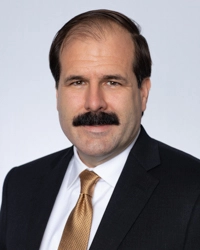The past decade has seen an explosion in online access and improvements in technology. These changes have naturally resulted in changes in medicine. Smartphone applications and videoconferencing are methods by which business, and now medicine, is conducted. California’s workers compensation system is no stranger to these advancements. But what happens when technology is applied to the century-old workers’ compensation system? Several recent cases outline the attempt to bring the system into the 21st Century.
The WCAB has addressed the role of treatment via telemedicine. In Oranje v. Crestwood Behavioral Health, 2014 Cal. Wrk. Comp. P.D. LEXIS 602, defendant sought reconsideration of the findings and order holding that applicant was entitled to either face-to-face or “telephonic therapy” with a marriage and family therapist. The WCAB allowed applicant to have telephonic therapy because she had moved to Nevada and the therapist was located in California.
The WCAB observed that telemedicine has been expanding in California and was originally introduced in 1996 by the Telemedicine Development Act, which allows physicians and surgeons licensed by the Medical Board to deliver telemedicine to a remote patient. Former Business & Professions Code § 2028.5 introduced a pilot program allowing the use of telemedicine, and the Telehealth Advancement Act of 2011 (Business & Professions Code §2290.5) expanded telehealth providers to include all licensed healthcare professionals and telehealth care settings. The WCAB also cited a number of telehealth statutes and regulations, including Business & Professions Code § 686, which allows marriage and family therapists to practice telehealth.
The WCAB noted that a healthcare practitioner may provide real-time services to patients, and there is no requirement that the patients originating site be within California. Thus, a California licensed healthcare provider “may provide telehealth services while he or she is located in California, whether or not the patient is also located in California.”
The fact that the provider is not licensed in the distant state (such as Nevada) is irrelevant. As long as the providing physician’s license is valid in California, the WCAB found no Nevada law prohibiting its residents from receiving telehealth from out of state. The WCAB concluded that treatment via telemedicine is consistent with California law.
The foregoing notwithstanding, the issue of medical-legal evaluations via telemedicine has not received a similar endorsement from the WCAB. In Gonzales v. ABM Industries, 2016 Cal. Wrk. Comp. P.D. LEXIS 558, the WCAB denied applicant’s petition for removal after the judge ruled that a QME exam via remote means was objectionable. The parties had received a QME panel in the specialty of pain management. After the respective strikes, the remaining QME stated (in the QME panel) that the evaluation would be “via telemedicine.” The footnote on the panel specified that the evaluation would take place “through the use of telehealth using interactive audio, video, or data communications.” Applicant requested a replacement panel, which the WCJ issued.
In his report and recommendation against removal, the WCJ noted that the panel did not specify whether the QME would participate in the examination via email, via computer with camera (with or without audio), or by telephone. Also, the Medical Director stated the PQME would only supervise “a designee” at the examination, and the designee would have a chiropractic license and QME certification. Moreover, a consent form stated that the patient may refuse to participate in a QME evaluation via telemedicine.
Defendant argued that telemedicine was accurate and reliable, but the WCJ observed that there was no assurance the QME would actually participate in any live feed. Rather, his “designee” may appear via video. Citing 8 CCR §49.2, the judge concluded that there was no assurance that the face-to-face time with the patient would be “actually spent” by the QME. The judge also cited Labor Code §4628(a), which provides that no person, “other than the physician signing report… Shall examine the injured employee….” The WCAB denied the petition for removal.
These cases show that telemedicine is on the rise. While the WCAB has endorsed treatment by a marriage and family therapist via telemedicine, QME evaluations via telemedicine appear to be objectionable—at least at this time. Claims professionals must carefully review any request for telemedicine, particularly in the medical-legal setting, as well as any requests for a virtual evaluation so as to avoid an unknown “designee” conducting the evaluation.
If a treating physician is available outside of California, such as when an employee moves to another state, the costs and advantages of telemedicine should be considered. For treatment such as psychotherapy, telemedicine may be appropriate when contrasted against the potential costs of providing out-of-state treatment and potentially losing medical control. However, in more complex situations, such those involving treatment with a surgeon or pain management physician, medical treatment via telemedicine may create conflicts between California law and the law the applicant’s state of residence.
Happy computing to all!
Michael P. Burns is a Partner at Bradford & Barthel’s San Jose location. Before joining B&B, Mr. Burns practiced civil litigation and employment law. He currently serves as an arbitrator for the Santa Clara County Bar Association’s Fee Dispute Resolution Program. Since joining B&B, his primary areas of practice include workers’ compensation and subrogation. Mr. Burns can be reached at mburns@bradfordbarthel.com or (408) 392-8202.
Viewing this website does not form an attorney/client relationship between you and Bradford & Barthel, LLP or any of its attorneys. This website is for informational purposes only and does not contain legal advice. Please do not act or refrain from acting based on anything you read on this site. This document is not a substitute for legal advice and may not address every factual scenario. If you have a legal question, we encourage you to contact your favorite Bradford & Barthel, LLP attorney to discuss the legal issues applicable to your unique case. No website is entirely secure, so please be cautious with information provided through the contact form or email. Do not assume confidentiality exists in anything you send through this website or email, until an attorney/client relationship is formed.


